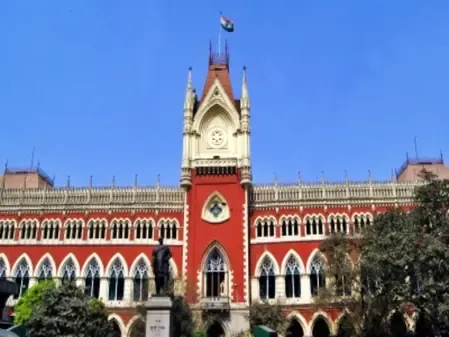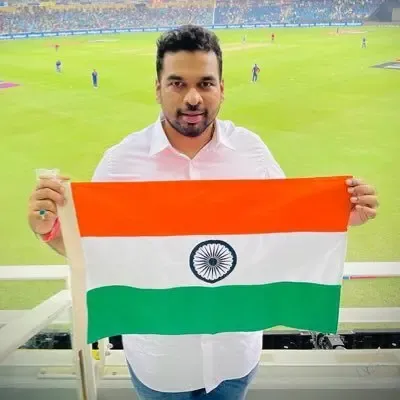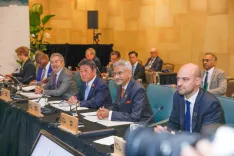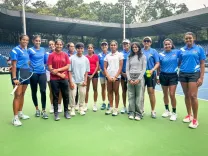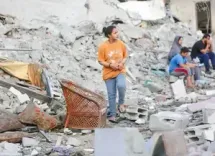What are Iraqis Seeking After the Recent Parliamentary Elections?
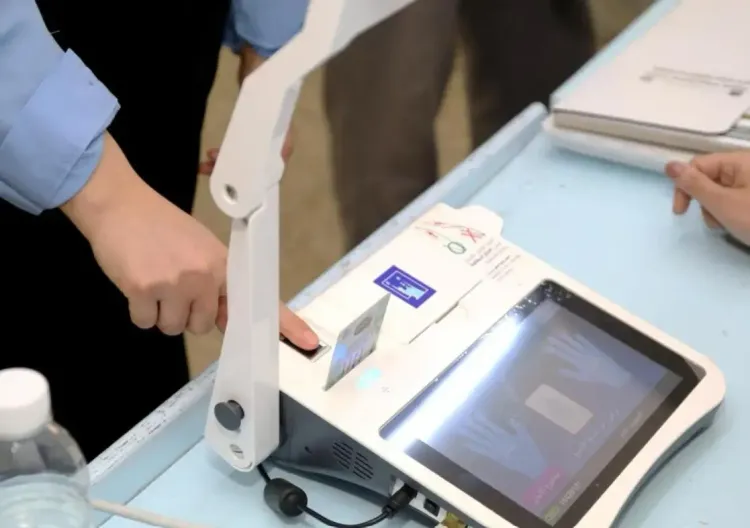
Synopsis
Key Takeaways
- Iraq conducted its sixth parliamentary election since 2003.
- Over 20 million voters participated in the election.
- Significant emphasis on women's representation with over 2,200 candidates.
- Call for change and development resonated among voters.
- Political leaders highlighted the elections' importance for Iraq's future.
Baghdad, Nov 12 (NationPress) Iraq conducted its sixth parliamentary election since the 2003 US-led invasion, with more than 20 million eligible voters participating at 8,703 polling stations to select from 7,744 candidates vying for 329 parliamentary seats.
The voting commenced at 7:00 a.m. local time on Tuesday and concluded at 6:00 p.m. local time, under the watchful eye of the Iraqi Independent High Electoral Commission (IHEC). Among the candidates were over 2,200 women, with Iraqi leaders emphasizing the importance of this election for the nation’s future.
This election was held during a required silence period intended to ensure security. The previous parliamentary elections in 2021 resulted in violent confrontations in Baghdad and almost a year of political impasse before a government was finally established.
A significant boycott was noted from the influential Shiite cleric Moqtada al-Sadr and his followers, who pointed to the ongoing corruption within the political landscape.
In a national address on Friday, Iraqi Prime Minister Mohammed Shia' al-Sudani called on citizens to participate in “the most crucial election since 2003,” stating it would “shape Iraq’s future for the next 20 years.”
Al-Sudani cast his vote on Tuesday at a polling site in the Karrada district of central Baghdad, notably accompanied by his elderly mother in a wheelchair, highlighting the elections' significance for every citizen, as reported by Xinhua news agency.
“These elections, conducted on their constitutional date, reaffirm the principle of a peaceful transition of power within Iraq’s new political framework,” al-Sudani stated to reporters after voting.
“Every vote is vital for Kurdistan. Engage and vote to influence your future and that of our nation,” remarked Nechirvan Barzani, president of Iraq's Kurdistan Regional Government, after voting in Erbil.
Meanwhile, Iraqi voters expressed a strong desire for change and development.
“For the sake of our future and positive change, I voted in this significant parliamentary election,” said Alaa Mahmoud, an employee at the Education Ministry, after voting at the al-Masarra polling centre in central Baghdad.
“We need to participate to replace the old faces with new ones who can address past challenges and improve the national landscape,” Mahmoud added.
Hawraa Ali, a teacher, emphasized the evolving national focus: “The security situation has stabilized, and we now aim to enhance services. I chose a candidate I trust will work towards better education, which is crucial for our country’s future.”
Media Professor Mohammed al-Jubouri from al-Iraqia University in Baghdad remarked that the election signifies the Iraqi people's hopes for enduring stability and comprehensive growth.
“These elections offer a critical opportunity to strengthen the political framework and ensure the next government can effectively strive for lasting stability and reform for all citizens,” he noted.
“The current, sixth round of parliamentary elections is deemed one of the most significant. We anticipate a strong turnout, as the Commission has set up all necessary components for a successful polling experience,” stated Saddam Thabit, IHEC Director for Baghdad's Karkh area, to Xinhua.

